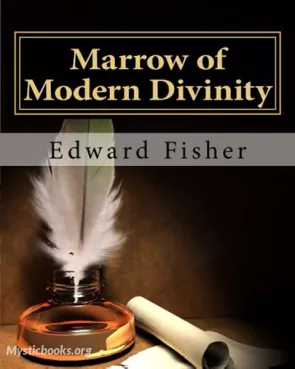
Timeline
Title
Country/Nationality
Edward Fisher
Introduction:
Edward Fisher, an influential theological writer, made significant contributions to religious literature during the 17th century. Known for his deep theological insights and profound writings, Fisher's work continues to impact the Christian community. Through his principles, notable works, and philosophy, Fisher left a lasting legacy that endures to this day.
Who was Edward Fisher?
Edward Fisher, who flourished from 1627 to 1655, was an English theological writer of the 17th century. Though relatively little is known about his personal life, his theological writings have made him a notable figure in religious literature.
Principles and Notable Works:
Fisher's principles were deeply rooted in the Protestant tradition, emphasizing the centrality of Scripture, the doctrine of salvation by grace through faith, and the importance of a personal relationship with God. His writings sought to guide believers in their spiritual journey and deepen their understanding of Christian doctrine.
Fisher's most famous work is "The Marrow of Modern Divinity." Originally published anonymously in 1645, this book became highly influential within Puritan circles. It tackled key theological issues such as the nature of God's grace, the role of the law, and the assurance of salvation. "The Marrow of Modern Divinity" remains widely studied and respected as a classic in Reformed theology.
Philosophy:
Fisher's philosophy revolved around the idea that true Christianity is rooted in the grace of God and faith in Jesus Christ. He emphasized the need for a personal and heartfelt relationship with God, as well as a thorough understanding of biblical truths. Fisher believed that the knowledge of God's Word and the application of its principles to daily life were essential for spiritual growth and true Christian living.
Legacy and Remembrance:
Edward Fisher's impact as a theological writer remains significant. His commitment to theological accuracy and his ability to present complex doctrines in accessible language made him influential among his contemporaries and subsequent generations. "The Marrow of Modern Divinity" stands as a testament to his profound understanding of Christian theology and his desire to guide believers in their faith.
Edward Fisher's exact date of death is unknown, but his writings continue to be read and studied by theologians, pastors, and believers seeking to deepen their understanding of Christian doctrine. His contributions to religious literature are remembered with admiration, and his works continue to shape theological discussions and inform the faith of many.
Interesting Facts:
While Edward Fisher's personal life remains somewhat elusive, his theological works have garnered significant attention. "The Marrow of Modern Divinity" sparked theological debates and discussions among Puritans and remains a valuable resource for those interested in understanding the theological landscape of 17th-century England.
Conclusion:
Edward Fisher, a renowned theological writer of the 17th century, made lasting contributions to religious literature. Through his principles, notable works such as "The Marrow of Modern Divinity," and his commitment to accurate theology, Fisher's influence endures. His writings continue to guide and inspire believers seeking to deepen their understanding of Christian doctrine and grow in their faith. Edward Fisher is remembered as a significant figure in theological literature, and his legacy continues to impact the Christian community.
Books by Edward Fisher

The Marrow of Modern Divinity
This is a timeless and profound exploration of Christian doctrine. Written by the esteemed theologian Edward Fisher, this book offers valuable insights into key theological issues and has remained relevant and influential since its publication. Orig...